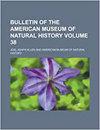HIGHER-LEVEL RELATIONSHIPS OF THE SPIDER FAMILY CTENIDAE (ARANEAE: CTENOIDEA)
IF 3.4
2区 环境科学与生态学
Q1 BIODIVERSITY CONSERVATION
Bulletin of the American Museum of Natural History
Pub Date : 2003-01-01
DOI:10.1206/0003-0090(2003)274<0001:HLROTS>2.0.CO;2
引用次数: 19
Abstract
Abstract A cladistic analysis based on parsimony is undertaken to test hypotheses concerning the monophyly of the ctenid spiders and the relationships among their various clades. The data matrix comprised a total of 98 species representing 16 families scored for 146 characters, with all but six taken from various morphological systems; the remaining are behavioral attributes. Ctenidae is shown to be polyphyletic as currently delimited, but the most severely questioned taxa (i.e., Acanthoctenus, Cupiennius, and Ancylometes) are indeed members of this family. The so-called ctenid eye pattern is shown to be a synapomorphy uniting a more restricted set of taxa. This clade is recognized as Ctenidae sensu stricto and it comprises at least five major lineages: Acantheinae, Acanthocteninae, Calocteninae, Cteninae, and Viridasiinae. The latter taxa are hypothesized to be the sister group of all other ctenids. In turn, a clade formed by Miturgidae s.s. and Zoridae s.s. is proposed as the sister group of Ctenidae. The cladistic analysis also refutes the monophyly of Ctenus, Anahita, Enoploctenus, Celaetycheus, and Leptoctenus. The following taxonomic changes are proposed: Anahita isaloensis Ono, 1993 is transferred to Vulsor Simon, 1888; Diallomus Simon, 1897, currently placed in Zoridae, is transferred to Ctenidae; Tunabo Chamberlin, 1916 is synonymized with Neoctenus Simon, 1897; Neoctenus is removed from Zoridae and transferred to Trechaleidae; Xenoctenus Mello-Leitão, 1938 is removed from the synonymy of Tunabo and considered incertae sedis, within Ctenoidea.蛛科蛛科的高级关系(蛛亚目:蛛总科)
摘要本文以简约性为基础,进行了分支分析,以检验有关栉蛛单一性的假设及其各分支之间的关系。数据矩阵由16科98种共146个性状组成,除6个外均来自不同的形态系统;剩下的是行为属性。根据目前的划分,蛇科被证明是多系的,但最受质疑的分类群(即棘ocanthoctenus, Cupiennius和Ancylometes)确实是这个科的成员。所谓的锥体眼模式被证明是一种联结更有限的类群的突触形态。这个分支被认为是严格意义上的棘猴科,它至少包括五个主要分支:棘猴科、棘猴科、棘猴科、棘猴科和绿猴科。后一分类群被假设为所有其他栉水母的姐妹群。反过来,由Miturgidae s.s和Zoridae s.s组成的分支被认为是蛛科的姐妹群。分支分析也驳斥了Ctenus、Anahita、Enoploctenus、Celaetycheus和Leptoctenus的单系性。提出了以下分类上的变化:Anahita isaloensis Ono, 1993被转移到Vulsor Simon, 1888;Diallomus Simon, 1897年,目前被置于鸟居科,被转移到鸟居科;Tunabo Chamberlin, 1916与Neoctenus Simon, 1897是同义词;Neoctenus从Zoridae移到Trechaleidae;Xenoctenus mello - leit, 1938年从Tunabo的同义词中移除,并被认为是蜈蚣科内的incertae sedis。
本文章由计算机程序翻译,如有差异,请以英文原文为准。
求助全文
约1分钟内获得全文
求助全文
来源期刊
CiteScore
7.90
自引率
2.90%
发文量
4
审稿时长
>18 weeks
期刊介绍:
The Bulletin, published continuously since 1881, consists of longer monographic volumes in the field of natural sciences relating to zoology, paleontology, and geology. Current numbers are published at irregular intervals. The Bulletin was originally a place to publish short papers, while longer works appeared in the Memoirs. However, in the 1920s, the Memoirs ceased and the Bulletin series began publishing longer papers. A new series, the Novitates, published short papers describing new forms.

 求助内容:
求助内容: 应助结果提醒方式:
应助结果提醒方式:


